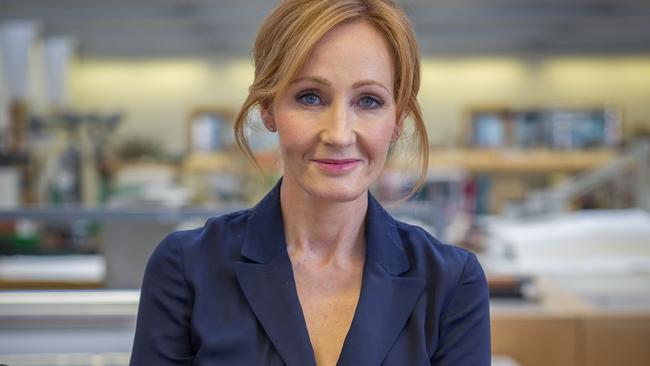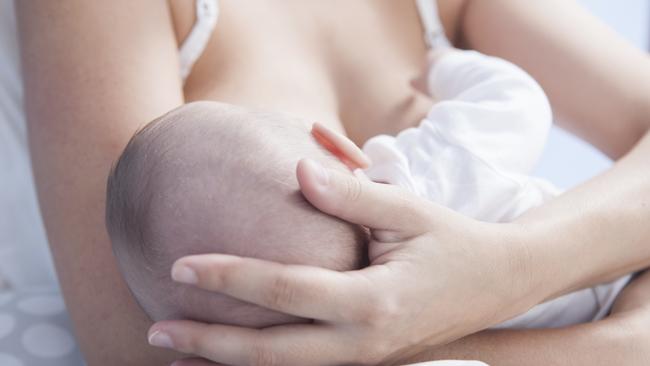Women, we’re in the fight of our lives to save our identity
The transgender movement’s push to expunge female biology is as dangerous as it is despicable.

From our vantage point, the overall direction is distinctly positive: we strive for the inherent dignity of the individual to live free from ideological shackles imposed on them by others, to be free to prosper spiritually, emotionally, physically and materially. The route — one of debate, discussion and disagreement — has been the key to moving closer to genuine inclusivity, diversity and tolerance.
Something very different has taken hold within a few short years when it comes to thinking about what it means to be a woman. We have stopped thinking. The trans movement has decreed that biology is no determinant of womanhood. Many within this social justice movement assert that there is no room for debate, and that if we dare to try to discuss it, or challenge their diktats, we should expect the same vitriol, abuse and public shaming heaped on JK Rowling last year.
What is unfolding is the antithesis of inclusivity and tolerance. Worse, it marks a disturbing detour from progress. Surely, our desire to support trans men and women need not be done by eliminating the reality of women’s biological identities? Yet only a handful of brave women spoke out this week in the British parliament about a law dealing with paid maternity leave that has expunged a pregnant woman from the law, choosing instead to refer to “a person who is pregnant”. Proving herself once again to be a gleaming light of logic, Baroness Claire Fox, an independent, said: “These new language codes and norms are mandating us to adopt doublespeak. Why do I need to describe myself as a ‘cis woman’? I am a woman; that is it — enough. I am not a uterus holder, nor a person with a vagina nor a chestfeeder. These are linguistic abominations, but they are not harmless. Ultimately, these body part descriptions demean women and are a linguistic assault on the notion that biological sex exists at all.’’
There is an unmistakeable push across institutions to erase women and their biological reality. Earlier this month, the Brighton and Sussex University Hospitals Trust laid down in its internal guidelines that there are “birthing parents” rather than “mothers” and “chest-feeding” in place of “breast-feeding”.
In Australia, too, the biological female is being quietly erased, though not yet by our parliaments. The Gender Institute at the Australian National University in Canberra, for example, published a handbook last year in which the words “mother” and “father” are replaced with “gestational” and “non-gestational” parent. “Breastfeeding” becomes “chest-feeding”, and “mother’s milk” becomes “human milk”.

For centuries, feminists fought for women to be recognised in all our biological glory. Fox and a few others, women such as Germaine Greer and Rowling, are continuing that battle. But where are the younger feminists? So vocal on other important matters, why are they so silent about an issue that goes to the core of womanhood and feminism?
If men advocated for the erasure of female biology from laws, policies and other official forms of language to suit them, most women would be screaming to high heaven about the misogyny of that project. But when a small group of trans activists call for the elimination of female biology from language, laws and sport, there is cowering silence.
Do we understand what is at stake? The move to eliminate the biological woman from the English language is worse than book burning. It is more damaging than toppling statues, censoring art, cleansing words from The Adventure of Huckleberry Finn and removing dialogue from our TV screens’ clips of Fawlty Towers.
It is altogether different from adding “Ms” to the list of titles for women or swapping “chairman” with “chairperson”. Language has always adapted to new times. We have moved on from the language of Beowulf and Chaucer.
Expunging female biology from our language is the state-sanctioned humiliation of women. When carried over into laws, it makes it harder for women to be safe in public toilets and prisons, and impossible for women to compete fairly in sport.
We women talk among ourselves about being mentally “undressed” by men. Now we face something worse being done, not to a single woman, but en masse: all biological females, tiny tots included, are being told by parliaments and bureaucracies that our female biology is to be stripped away from us, treated as a matter of inconsequence in the eyes of bureaucracies and the law. Stamping out our intrinsic biological identity is an abomination akin to stripping the sexual identity from gays or the religious identity from Christians or Muslims or Sikhs.
While it is clear the trans movement is far more doctrinaire in its quest for rights than other social justice movements over the past few hundred years, what is less clear is why we’re so afraid to push back against illogical, unreasonable and destructive demands?
Perhaps some people imagine that attempts to excise mothers and women from our language is a temporary detour, that we will ultimately right ourselves to a more enlightened path. If so, then the past few years will be just another challenge we surmounted in the long, complicated, imperfect yet dazzling story of western civilisation. We would be able to look back and wonder what on earth got into us that we allowed this demented, illogical fad to take hold, even for a short time.
But what if it is not a fleeting moment of nonsense? What if the project to decouple women from their biology is more long-term? When we agree to demands to dehumanise half the population by stripping away their biology, we dehumanise the whole of society.
It will make it easier to strip other groups from the essence of their beings. Isn’t that the lesson of slavery, of apartheid, and of ongoing racism?
Given that we cannot know now whether this is a passing fad or a permanent change to society, we had better do all that we can to make sure it is the former. That means fighting for the spirit of enquiry, of debate, and, inevitably, disagreeing with each other.
In her thought-provoking 3600-word essay posted online last June, Rowling raises many of the issues that need to be explored and debated, not just about the distortion of language, but about other issues at the centre of the trans movement. For example, the 4400 per cent increase in girls being referred to transitioning treatment in Britain, with autistic girls over-represented in these astonishing numbers. Rowling wrote about her experiences as a girl who did not “feel pink”, and how she worked out that “it’s OK to feel confused, dark, both sexual and non-sexual, unsure of what or who you are”. For being curious and trying to keep inquiry open by defending a woman’s right, need, and desire to be recognised as a biological being, Rowling is the target of bile and bigotry.
If we, as women, cannot defend our biological being, what will become of women? If we, as adults, cannot talk openly about the explosion of gender dysphoria among children, how can we know we are doing the right thing by children? We at risk of conducting a giant social experiment without enough careful analysis of what is happening.
The darkest side to the project to kill off a woman’s biological self is not what has happened to date. The most dangerous part put about by many within the trans movement is that there is no space for women to defend their biology, and no room for debate when it comes to gender dysphoria.
It signals a form of ideological tyranny that, in light of recent history, those living in the 21st century ought to be well equipped to recognise and resist.




For thousands of years, people have discussed, debated, and disagreed with each other when considering what it means to be human. From the ancient Greeks to the 21st century, western civilisation’s exploration of human identity has not been a straight line, nor a road without whopping big bumps. Those more taken with the ecstasy of thought have helped steer human progress.